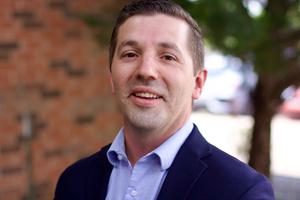
Culture & the Family
Matt Oberdick | June 20, 2025
Beyond the silo: Why conservatives must reunite cultural integrity and economic freedom
Matt Oberdick
For far too long, many conservatives have operated under a false divide—treating “social issues” and “fiscal issues” as if they belong to two separate worlds. One group rallies around tax cuts and regulatory reform. Another rallies around life, family, and religious liberty.
But if the events of the past decade have taught us anything, it’s this: Cultural integrity and economic freedom are inseparable. You cannot sustain one without the other.
There is no thriving free market without strong families.
Freedom—whether cultural or economic—depends on a citizenry capable of self‑governance. That means people are formed by virtue, shaped by strong families, and motivated by personal responsibility. Remove that cultural foundation, and liberty collapses into chaos. As Edmund Burke warned, “Men are qualified for liberty in exact proportion to their disposition to put moral chains upon their own appetites.”
Freedom Without Virtue Cannot Last
Many on the left seem to understand what too many on the right have forgotten: you cannot sustain liberty without a moral foundation. That’s why progressive activists target the institutions that form character and community—from the family to the church to the classroom. They recognize that when you reshape the culture, you reshape the citizen—and ultimately, the society.
There is no self‑government without self‑control.
That truth was foundational to America’s design. John Adams famously said, “Our Constitution was made only for a moral and religious People. It is wholly inadequate to the government of any other.” The Founders understood that economic freedom, political liberty, and limited government all depend on a population capable of self‑government.
That kind of virtue doesn’t emerge automatically. It’s cultivated—in families, faith communities, and civic life. And if we lose those institutions, we lose the very preconditions of freedom itself.
Strong Families and Cultural Integrity Are Policy Wins
While no legislative session addresses every challenge, Oklahoma’s 2025 session did include several important policies that advanced cultural integrity and reinforced the foundational role of family, faith, and responsibility in public life.
These victories are worth highlighting—not as the full picture, but as meaningful progress in a time when those foundations are under increasing pressure.
- Protecting women in the prison system. It shouldn’t take legislation to affirm biological reality—but in 2025, it did. Oklahoma enacted a law preventing biological males from being housed in women’s correctional facilities, protecting female inmates from the physical and psychological risks posed by gender ideology. This policy is grounded in compassion and common sense. It affirmed that justice begins with truth, and that the most vulnerable women in our prison system should not be sacrificed at the altar of ideology. By upholding clear biological distinctions, this law protects the dignity and safety of women, reinforcing respect for natural order and safeguarding the integrity of social institutions, which in turn strengthens the cultural fabric that supports strong families.
- Protecting religious liberty in foster care. Responding to national reports—such as Vermont barring a Christian couple from foster care—Oklahoma lawmakers acted to protect the rights of prospective foster and adoptive parents to serve without compromising their sincerely held biblical beliefs. This is more than policy—it’s a moral stand. Oklahoma affirmed that religious belief should never disqualify families from helping children in need. Religious liberty is foundational to service, community, and a free society. By protecting people of faith, Oklahoma preserves a vital source of compassionate caregiving rooted in moral conviction, supporting family formation and strengthening communities that nurture children’s well-being and character development.
- Protecting students from educators under investigation. Oklahoma closed a loophole that had allowed teachers or administrators under investigation for abuse or misconduct to quietly resign and avoid accountability, potentially resurfacing in another district without warning. Under the new law, school superintendents must submit termination recommendations and investigatory findings to the State Board of Education, even if the employee resigns before formal action is taken. If the employee is ultimately cleared, their record is expunged. If they pursue employment elsewhere, any prior findings may be shared, alongside any response they wish to provide. This reform is a clear example of how policy can serve the common good. By ensuring transparency and safeguarding students, Oklahoma is reinforcing a culture of responsibility and trust in its education system. Parents deserve to know that those entrusted with the care of their children are being held to the highest standard—and that accountability cannot be escaped through paperwork or timing.
- Banning DEI programs in higher education. Oklahoma enacted a law eliminating the use of state funds for diversity, equity, and inclusion (DEI) programs in public colleges and universities. It prohibits public institutions from using resources to support DEI positions, departments, activities, or programs and bars them from mandating DEI training or requiring DEI statements from job applicants. By redirecting focus toward merit-based education and away from ideologically driven initiatives, this policy reinforces the principle that higher education should prioritize academic rigor and individual achievement. It supports the idea that institutions should cultivate environments where students engage with a range of ideas critically and respectfully, rather than being subjected to mandated ideological frameworks. This approach upholds the integrity of educational institutions and contributes to a culture that values open inquiry and personal responsibility—cornerstones of a flourishing society.
- Banning mobile phone use in public schools. In one of the most broadly supported reforms of the year, Oklahoma enacted a ban on mobile phones during school hours. Lawmakers emphasized that smartphones hinder learning by fueling distraction, dependency, and disruption. This isn’t just about test scores—it’s about restoring focus, discipline, and professionalism. It’s a clear signal that schools exist to educate, not to entertain. By fostering environments of discipline and attentiveness, this policy cultivates habits of responsibility and self‑control in young people, essential qualities for maintaining strong families and a healthy culture.
- Empowering parents through religious instruction during school hours. In addition to the aforementioned policy victories from 2025, it’s worth remembering a big win from 2024. Oklahoma enacted a law allowing students—with parental permission—to leave school during the day for released‑time religious instruction. Programs like LifeWise Academy are already launching in communities across the state. This reform reaffirms that parents—not the state—have the primary authority to shape their children’s spiritual lives. It represents a respectful partnership between public education and private faith. By strengthening parental rights in moral and religious formation, this policy supports the family as the fundamental institution of cultural integrity, ensuring children receive the guidance necessary to develop character, conviction, and a clear moral foundation.
The Big Picture: Culture Is Economics
Each of these victories might look like a “social” policy win. But make no mistake: every one of them strengthens the cultural integrity that economic freedom depends on—virtue, family, responsibility, and truth. Remember:
There is no thriving free market without strong families.
There is no self‑government without self‑control.
There is no liberty without cultural integrity.
In a forthcoming article, we’ll explore how Oklahoma’s economic policy victories from the 2025 session are not just good for markets—they’re good for families. From tax reform to school choice to workforce development, these policies help parents thrive, reward work, and reinforce the kind of virtuous citizenry that sustains both freedom and flourishing.
Oklahoma has an opportunity to show that when we get the culture right, the economy will follow.
Let’s stop dividing what was never meant to be separated.

Matt Oberdick
Director of the Center for Culture and the Family
Matt Oberdick is a lifelong Oklahoman and a graduate of OCPA’s J. Rufus Fears Fellowship program. He holds a Bachelor of Arts in Communications from the University of Oklahoma. Before entering public policy, Matt spent over a decade in ministry, serving in youth, children’s, and global missions leadership. He later served as Director of External Relations at the Oklahoma State Department of Education, where he worked to strengthen partnerships with parents, schools, and communities across the state. A graduate of the Family Policy Alliance Statesmen Academy, Matt is now the Director of the Center for Culture and the Family.